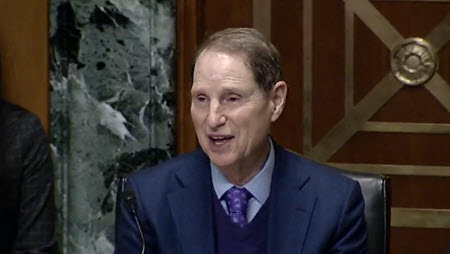
Senate Finance Committee Ranking Member Ron Wyden (D-OR) introduced two bills aimed at overhauling the taxation of partnerships this week, reviving a longstanding effort with major implications for commercial real estate.
Why It Matters
- The PARTNERSHIPS Act and the Basis Shifting is a Rip Off Act mark a renewed attempt by Democrats to clamp down on what Sen. Wyden calls “a preferred tax avoidance strategy for wealthy investors and mega-corporations.” (Sen. Wyden Draft Proposal and Summary)
- Although the legislation faces little chance of advancing this Congress, it signals Democratic priorities for any future tax package, particularly if control of Congress shifts after the 2026 elections.
- According to Sen. Wyden’s press release, partnerships are “a preferred tax avoidance strategy for wealthy investors and mega-corporations.” He continues, “you can bet we’ll have this on the shelf when it comes time for Democrats to pass an agenda that cleans up the harm Trump is doing to American families.” (Sen. Wyden Press Release, June 17)
- The PARTNERSHIPS Act is an updated version of Sen. Wyden’s 2021 partnership reform discussion draft. While he has not shared the JCT revenue table, his press release states that the proposals would raise $727 billion over 10 years.
- The legislation would make fundamental changes to how debt, gains, and deductions are allocated among partners—departing from established practices that reflect real estate economics and contractual obligations.
Bill’s Key Provisions
- Partnership debt: The PARTNERSHIPS Act would rewrite Section 752 rules to require all partnership debt be allocated according to profit shares, disregarding real estate partners’ actual economic risk, contractual guarantees, and repayment obligations. This could significantly alter basis allocation and impact deductions, losses, and gains—though a six-year transition period would apply.
- Allocation of partnership items: One of the major reforms proposed in the prior discussion draft was eliminating the “substantial economic effect (SEE)” safe harbor for allocating partnership items among the partners. The PARTNERSHIPS Act preserves the SEE rules while creating a specific rule for certain related-party partnerships. Under the Act, these partnerships would be required to allocate items consistent with contributed capital.
- Allocation of built-in gains with respect to contributed property: The bill would eliminate two of the three options available to partnerships for allocating built-in gain among the partners when property is contributed to a partnership.
- Net investment income tax: Mirroring the Biden budget, the bill would expand the 3.8% net investment income tax to include active pass-through business income not currently covered.
Roundtable Advocacy

- RER has consistently advocated for fair treatment of partnerships—emphasizing their vital role in driving investment, job creation, and entrepreneurial risk-taking. As nearly half of all U.S. partnerships are in real estate, RER continues to urge Congress to strengthen, not undermine, the long-standing tax rules that support pass-through businesses and economic development.
- RER, along with 23 national real estate organizations, previously led a comment letter on Sen. Wyden’s proposal in 2021, and will continue to advocate against provisions that mischaracterize partnerships as “tax scams.” (Letter, Sept. 2021 | RW, Sept. 2021)
- Earlier this year, RER commissioned a comprehensive study by professors at Syracuse University and USC to analyze and address the important role of partnerships in the U.S. economy.
RER’s Tax Policy Advisory Committee (TPAC) is reviewing how this research can further counter misleading narratives as tax policy discussions evolve.





